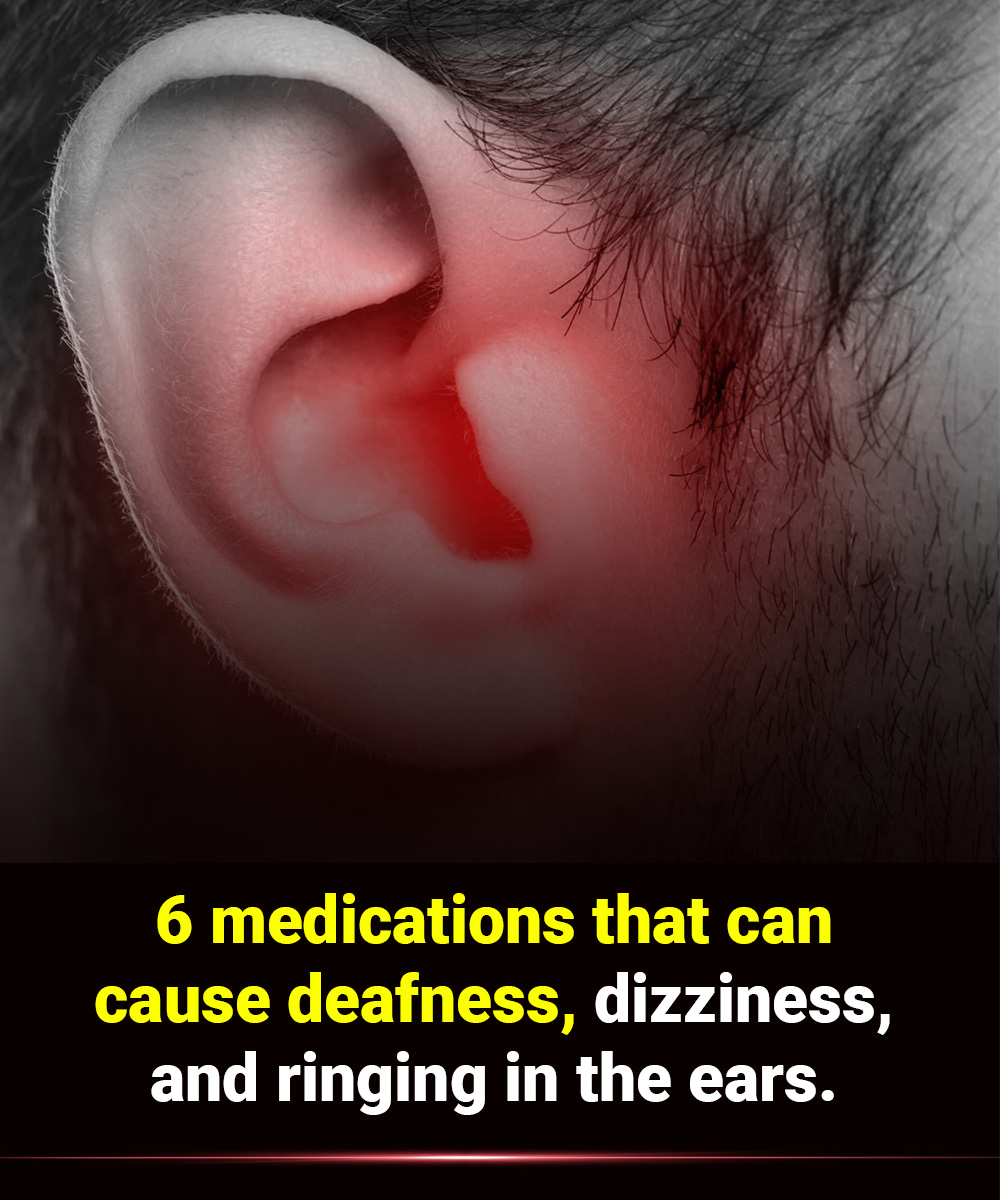Aminoglycoside antibiotics such as gentamicin, amikacin, and tobramycin are used to treat serious infections. However, Cold Spring Harbor Perspectives in Medicine reports that between 20% and 50% of patients develop hearing damage after use.
According to a study in Frontiers in Cellular Neuroscience, this effect is due to the accumulation of the drug in the hair cells of the inner ear, where it generates free radicals that irreversibly destroy them, causing progressive deafness and, in many cases, persistent tinnitus.
Furthermore, an article in The Anatomical Record warns that some aminoglycosides not only affect hearing but also balance. Gentamicin, for example, is highly vestibulotoxic, and can cause chronic dizziness and loss of stability.
Cisplatin and other chemotherapy drugs
Cisplatin is one of the most effective drugs against solid tumors, with very high cure rates for testicular cancer. However, a study published in the Journal of the Chinese Medical Association documents that up to 77% of treated patients develop irreversible hearing loss.
This drug enters the inner ear through specific transporters. The article in Cold Spring Harbor Perspectives in Medicine explains that once inside, it damages cell DNA, blocks vital processes, and generates oxidative stress. The result is cell death and cumulative hearing impairment.
Other compounds in the same family, such as carboplatin or oxaliplatin, can also damage the ear. However, research published in The Anatomical Record points to cisplatin as the agent with the greatest potential to harm hearing.
Loop diuretics and their auditory risks
According to the study in The Anatomical Record, loop diuretics, such as furosemide and bumetanide, are used to treat hypertension and heart disease. Although their ototoxic effects are usually temporary, when combined with aminoglycoside antibiotics, they can cause irreversible damage.
A study published in the American Journal of Audiology reveals that these drugs alter the ionic composition of endolymph, the fluid in the inner ear, causing imbalances that affect both hearing and balance. Some patients experience ringing in the ears and dizziness shortly after starting treatment.
The combination of diuretics and chemotherapy drugs further increases the risk, posing a challenge in cancer patients who also require fluid management.
Common Anti-Inflammatory Drugs and Analgesics
According to Schacht et al. (2012), aspirin, also known as acetylsalicylic acid, and other salicylates can cause tinnitus and temporary hearing loss. Although in most cases the symptoms disappear upon discontinuation of the medication, at high doses the risk increases considerably.
Accordingly, the study in Cold Spring Harbor Perspectives in Medicine reports that acetaminophen and other non-opioid analgesics have also been linked to an increased risk of hearing problems, especially with prolonged use.
These medications are generally considered safe, but evidence shows that prolonged use, especially in combination with other drugs, increases the likelihood of hearing complications.
Antimalarials and Specific Antibiotics
Medicines such as chloroquine and quinine, historically used against malaria, can cause tinnitus, dizziness, and hearing loss. The exact mechanism is still being investigated, but it appears to be linked to damage to the auditory nerve.
Furthermore, antibiotics such as vancomycin, especially when administered with aminoglycosides, increase the risk of ototoxicity. This combined effect represents a considerable risk in hospital treatment.
Although these drugs have saved millions of lives, their ototoxic potential requires rigorous monitoring in patients at risk.
Phosphodiesterase Inhibitors
The article published in The Anatomical Record describes how popular erectile dysfunction medications, such as sildenafil (Viagra) and tadalafil (Cialis), have received safety warnings due to cases of sudden hearing loss and vertigo.
The mechanism is not entirely clear, but it is believed to affect blood perfusion in the inner ear, reducing the supply of oxygen and nutrients to sensory cells.
Although these effects are rare, the growing popularity of these drugs warrants the warning. Patients who notice ringing in the ears or sudden hearing loss should discontinue use and seek medical advice.
Conclusion
Medications that cause hearing impairment represent a clinical challenge. Aminoglycosides, cisplatin, loop diuretics, anti-inflammatory drugs, antimalarial drugs, and erectile dysfunction drugs have all been shown to cause deafness, dizziness, and tinnitus.
Scientific knowledge allows for a balanced assessment of risks and benefits, but prevention depends on close medical monitoring. Detecting symptoms early can prevent permanent damage and preserve a healthy quality of life.

